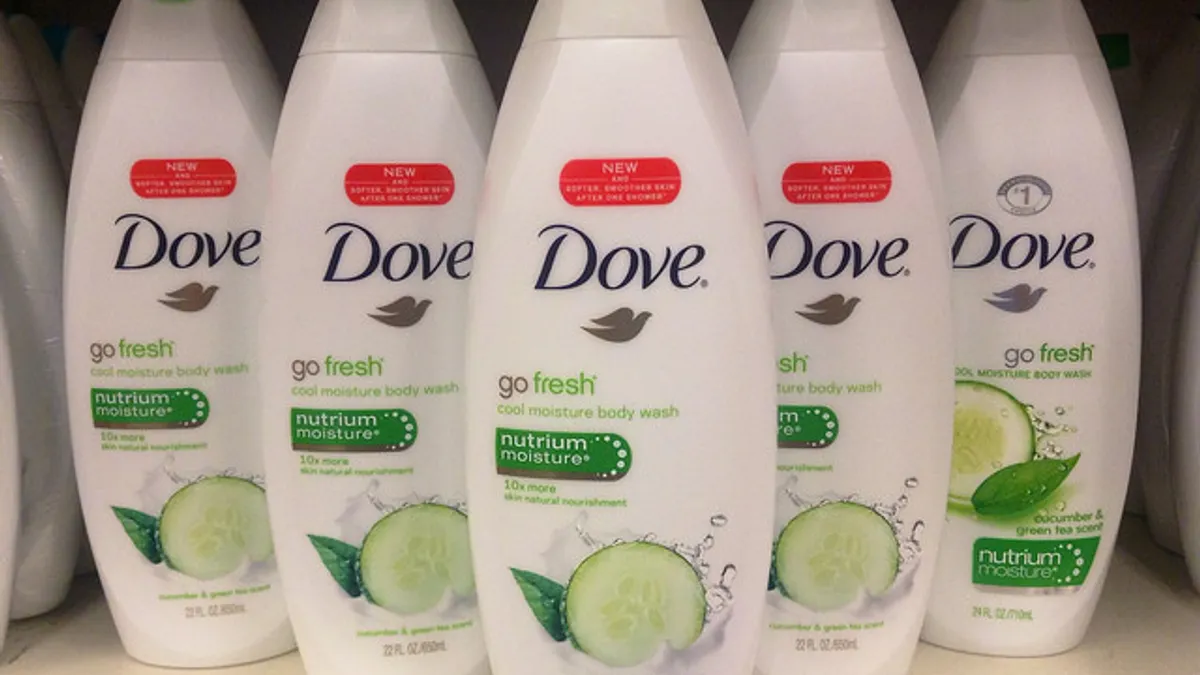Dive Brief:
- Unilever's Dove brand is launching the "No Digital Distortion Mark" to signal when an image has not been digitally altered, a news release announced. The company is rolling out the initiative across all of its branded content beginning in July, starting with its deodorant campaigns.
- By 2019, the company plans to incorporate the watermark into all of its static imagery depicting women across print, digital and social media channels. The 2016 Dove Global Beauty and Confidence Report found that 77% of surveyed women believe that all images in the media have been altered or airbrushed, and 69% say pressure from advertising and media to reach an unrealistic standard of beauty gives them anxiety about their appearance.
- The latest initiative is part of the Dove Self-Esteem Project, established in 2004 with a goal to reach 40 million young people with body confidence and self-esteem education by 2020. As part of the effort, Dove is helping educate young people to be more critical of what they see.
Dive Insight:
Dove has long positioned its brand around the idea of "real beauty," or focusing on everyday people over touched-up models, and the "No Digital Distortion Mark" extends the concept to how its marketing is actually presented to consumers by calling out unaltered photographs.
The Unilever marketer follows the lead of others in the personal care space in pushing for less altered images in brand campaigns. CVS Pharmacy has similarly pledged to use only unaltered images in its beauty ads by 2020. The retail chain released its first campaign as part of the initiative in April, and has urged other brands, including Revlon, L'Oreal and Johnson & Johnson, to follow its example.
Body positivity and self-confidence have been major themes in Dove's marketing for years, so it's perhaps surprising that the brand is only ramping up its focus on unaltered promotional images now. Its parent company Unilever announced last week that it is expanding its "Unstereotype" initiative across its content formats and is pushing for content creators and distributors to remove any outdated stereotypes from their marketing.
Dove's pledge to emphasize unaltered photos of women is in line with a growing trend of brands working to eliminate gender stereotypes in favor of positive, realistic imagery. A growing amount of industry research supports the idea that getting rid of outdated gender portrayals and unrealistic standards of beauty appeals to consumers.














